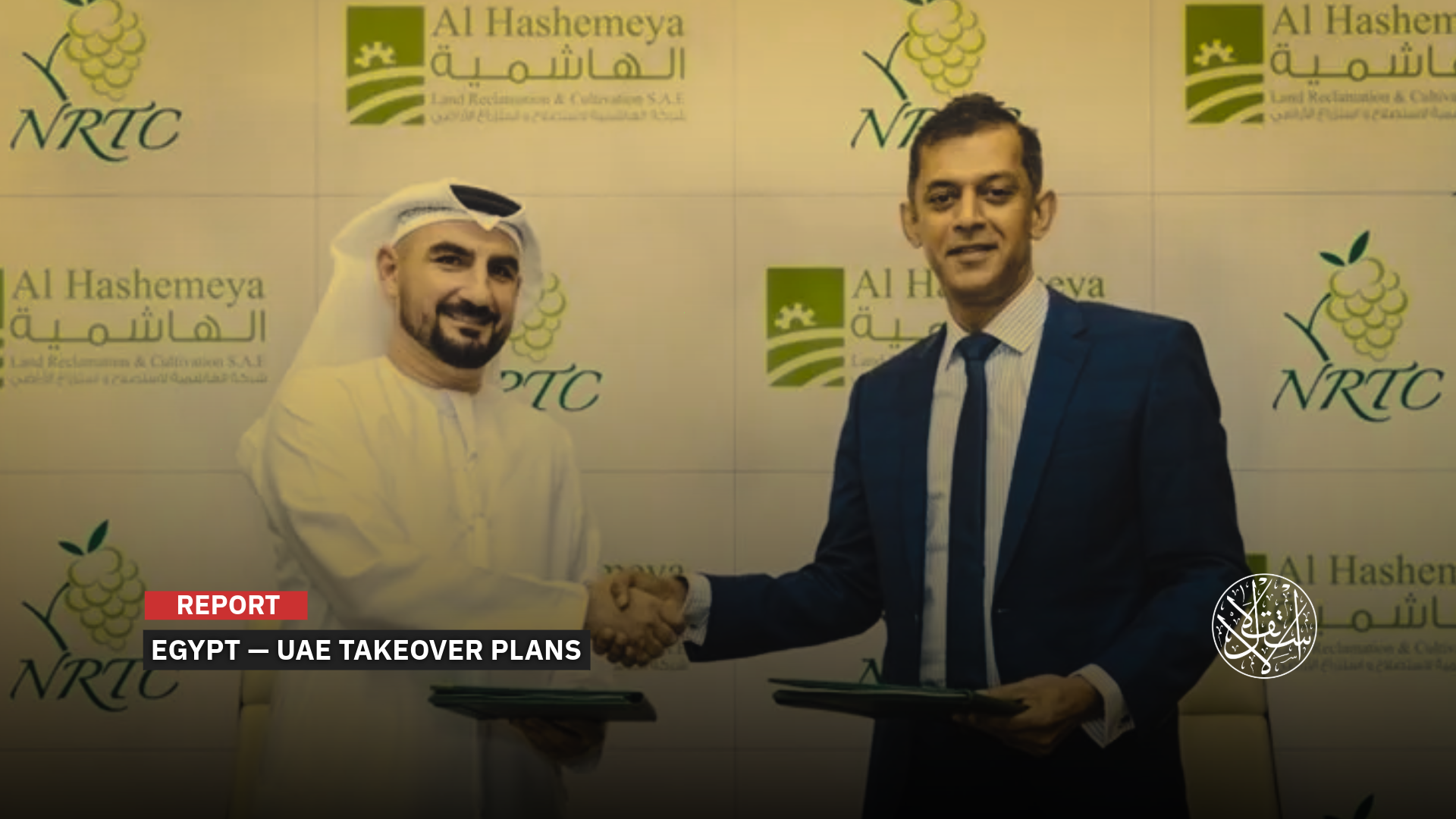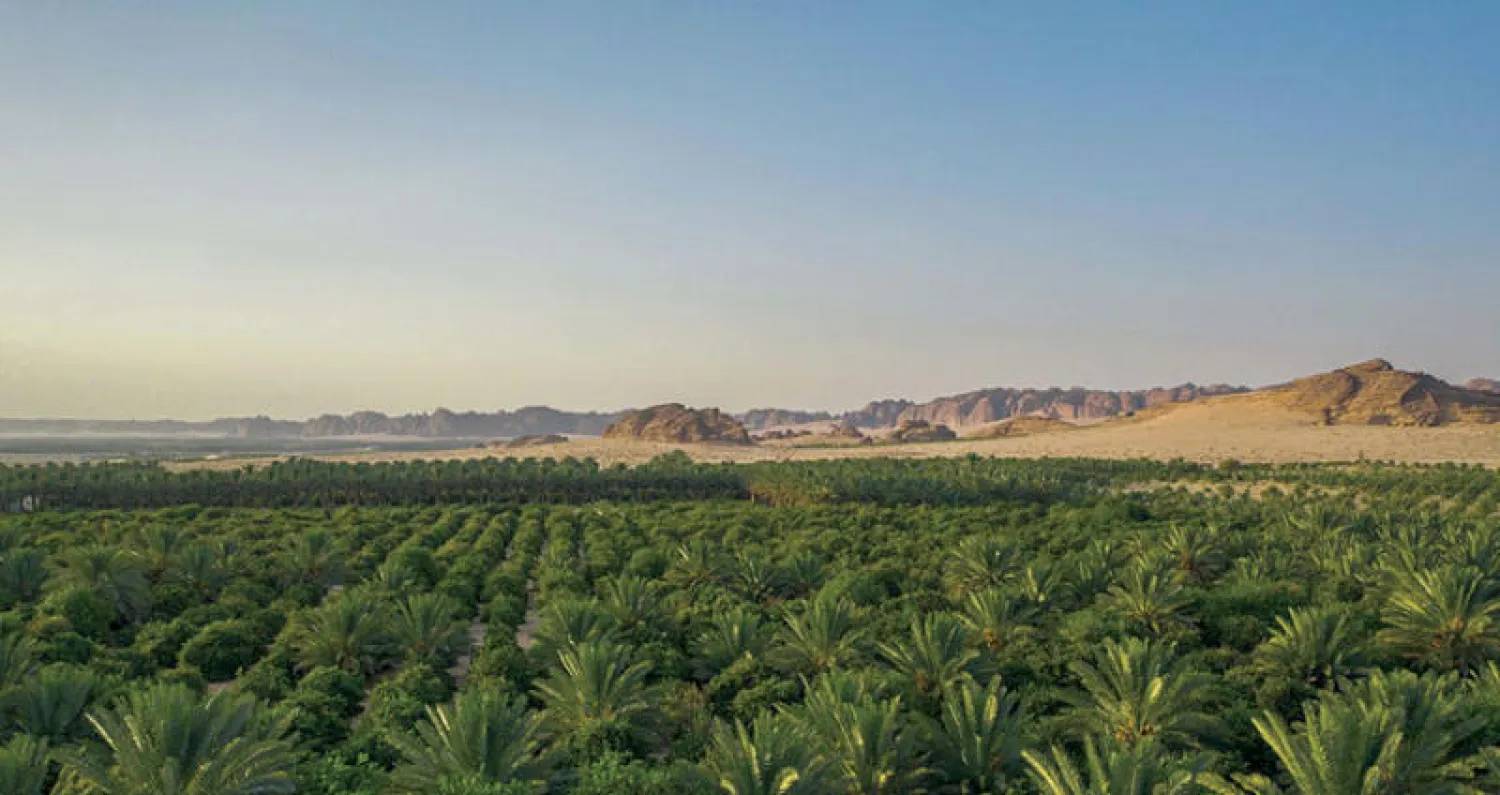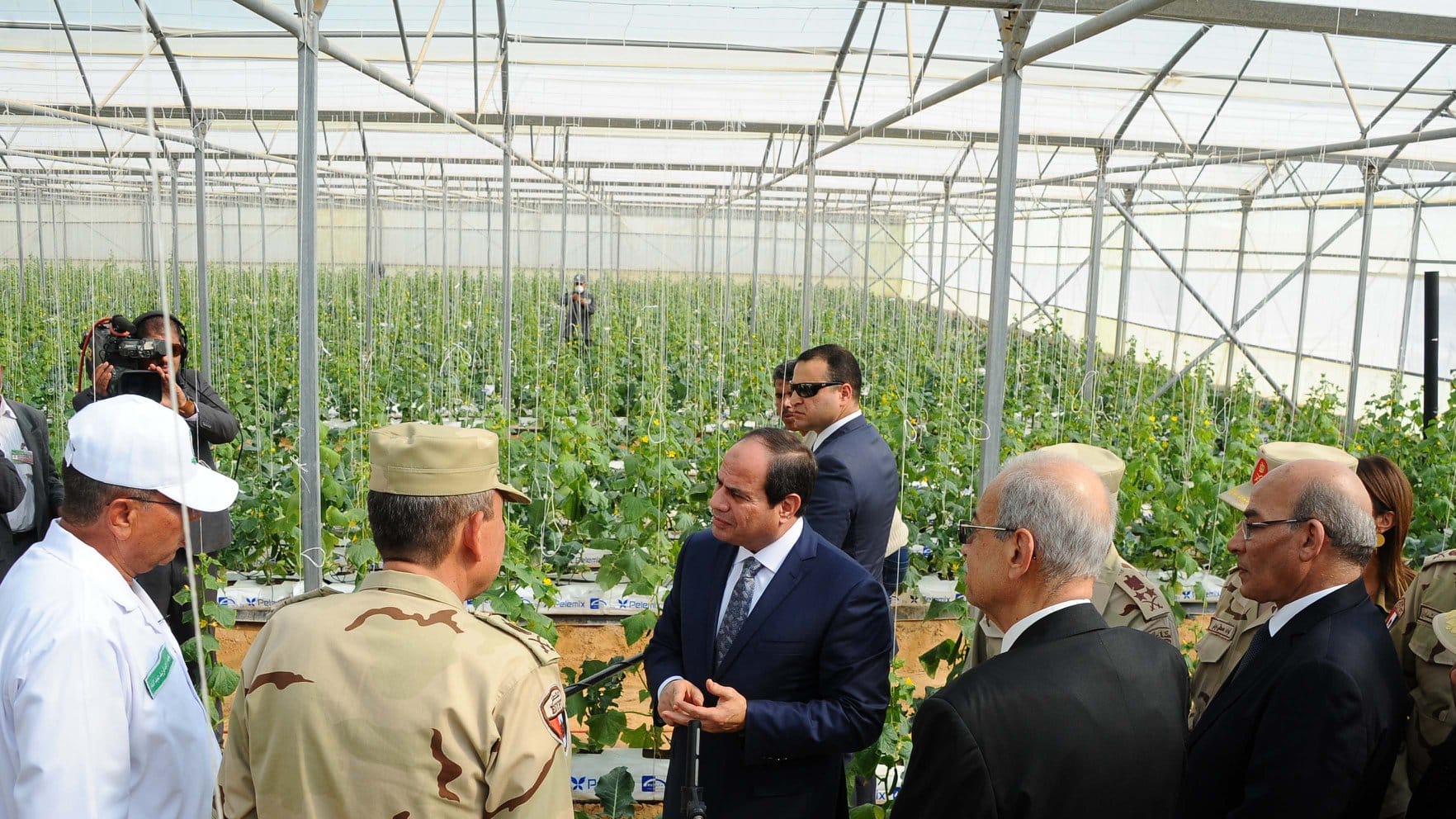UAE Acquires Egypt’s Largest Agricultural Complex: Inside the 'Hashemeya Deal'

The Hashemeya farms contain more than two million fruit-bearing trees.
In near-total silence and far from the media spotlight, one of Egypt’s largest privately owned farms has slipped into the hands of an Emirati company.
There was no announcement from Cairo, no explanation from the government, and no word on the seller. Yet on August 4, 2025, a deal was sealed for the takeover of a vast agricultural complex spanning 10,000 acres in Wadi el-Natrun.
The estate holds millions of fruit-bearing trees and produces strategic crops capable of supplying both domestic and international markets.
What jars is not only the scale of the acquisition but the candor of the buyer. The Emirati company made no attempt to disguise its objective. Its own statement spelled it out: the aim is to strengthen Gulf food security, not Egypt’s.
In a country struggling with a deepening food crisis and inflation that is eroding the poorest households, the transfer of agricultural assets on this scale is more than a commercial transaction. It is a strategic surrender of a lifeline directly tied to the nation’s food security and economic independence.
The Hashemeya Deal
While Egyptians were preoccupied with the grind of daily economic hardship, news of the sale barely registered. Reports in several Arab and international business outlets revealed that NRTC Food Holding, a Gulf-based distributor of fruit and vegetables, had completed the full acquisition of Hashemeya Farms.
Set in Wadi el-Natrun, the farm covers an immense 10,000 acres, about 70 percent of which is under cultivation. It boasts more than two million fruit-bearing trees and produces key crops including citrus, olives, grapes, mangoes, dates, wheat, and sugar beet.
Powered by a modern irrigation system that runs on solar energy, the farm yields around 70,000 tons of produce each year.
Despite the scale and significance of the deal, official statements and media coverage have been conspicuously silent on one crucial detail: the identity of the Egyptian party that sold this vast agricultural complex. Neither the government nor the Emirati buyer has disclosed the former owner or explained the legal steps through which ownership was transferred.
This secrecy casts serious doubt on transparency and accountability, and raises the question of who is quietly deciding the fate of Egypt’s agricultural wealth.
The statement issued by the Emirati company was equally striking for what it made explicit. It openly declared that the acquisition of Hashemeya Farms was part of an effort to “enhance the regional food security of the Gulf Cooperation Council states.” That framing inevitably prompts a sensitive question: has Egyptian farmland now become a reliable supply line for Emirati tables?
The timing makes the matter even more fraught. Egypt is in the grip of chronic water shortages, while climate change and ill-planned urban expansion are steadily eating away at its farmland. This invites sharp scrutiny over how one of the most fertile agricultural areas in the Nile Delta could be handed over to a foreign investor with full control of its water, irrigation, production, and even export capacity.
Emirati Expansion
The acquisition also fits into a much wider arc of Emirati expansion. In 2023, the UAE government issued a statement that seemed less like a slogan and more like a mission plan: “We are progressively moving forward in the disruption of food systems to be able to grow anything anywhere regardless of climate and environment.”
It was not an abstract ambition but, in hindsight, the prelude to what has become one of the most organized land grabs in the region.
Within this broader strategy, Egypt has emerged as the most critical and fertile link. According to data compiled by GRAIN, a Spanish organization focused on protecting food sovereignty, by July 3, 2024, the UAE owned and managed nearly 788,000 acres of Egyptian farmland.
Put in perspective, between 2014 and 2023, Egypt’s government announced that it had reclaimed around 1.827 million acres nationwide. In other words, as the Spanish group points out, the UAE now effectively controls more than 40 percent of all land reclaimed in Egypt over the past decade.

Al-Dahra Takeovers
At the center of this expansion stands al-Dahra, the most powerful agricultural arm of the Abu Dhabi Holding Group.
This is no small-scale or peripheral operator. Al-Dahra’s cultivation in Egypt spans more than a quarter of a million hectares, spread across Toshka, East Oweinat, and el-Salheya.
Wheat, corn, alfalfa, potatoes, dates, mangoes, grapes—these crops are now grown under the al-Dahra name, a company that proudly calls itself “the largest private-sector wheat producer in Egypt.”
According to its chief executive, Raouf Tawfik, speaking on August 16, 2024, the company has delivered around 450,000 tons of wheat to Egypt’s Ministry of Supply over the past five years, along with 210,000 tons of corn and 90,000 tons of sugar beet, most of which went to the domestic market.
But the story is not just about production. In July 2023, Cairo signed a $100 million loan agreement with the Abu Dhabi Fund for Development to purchase grain from al-Dahra. In other words, Egypt borrowed money to buy crops grown by an Emirati company on its own soil.
At the same time, negotiations began between al-Dahra and the government for an additional 500,000 acres in the Toshka project. If approved, that would push the company’s holdings close to half a million acres under its sole control.

Jenaan Investment
The second major Emirati player in Egypt’s agricultural sector is Jenaan, a company that has chosen to focus on olives, dates, and livestock feed in the governorates of Minya and East Oweinat.
Jenaan is also a partner in a water buffalo dairy project alongside a local Egyptian company.
Meanwhile, the UAE-based International Holding Company (IHC) is expanding its agricultural footprint through two brands, the Hashemeya and Ithmar, specializing in table grapes, mangoes, and citrus fruits, with a clear orientation toward export markets.
But what happens in the fields is only part of the picture. Agthia, a food subsidiary of Abu Dhabi Holding, now owns 70 percent of Egypt’s Abu Auf, a leading producer of healthy and packaged foods, and operates more than 175 outlets nationwide.
The Emirati conglomerate al-Ghurair controls 70 percent of al-Canal Sugar Company, which runs a massive sugar complex in Minya that ranks among the largest in the Middle East.
At the retail end, Lulu Hypermarket, owned by Abu Dhabi Holding, operates dozens of outlets across the Nile Delta, serving as a primary channel for Emirati agricultural products in the Egyptian market. Carrefour, managed by the UAE’s Majid al-Futtaim Group, runs roughly 70 stores in Egypt and announced plans in 2023 to double that number to 140 within a few years.
A Question of Sovereignty
Political analyst Mohamed Maher says this sweeping Gulf expansion in Egypt’s agriculture sector is officially framed as investment meant to inject capital into an industry long constrained by limited domestic resources.
However, he told Al-Estiklal that such a rationale “does not hold up when you consider the vast sums the government has spent on flashy, non-productive projects in recent years.”
“If the problem were truly a lack of funding,” Maher asked, “why not direct just $10 billion from the hundreds of billions spent on non-productive ventures into agriculture, a sector that is inherently productive and capable of saving foreign currency by replacing imports or boosting exports?”
Maher also pointed out that many Gulf companies, especially Emirati ones, acquired Egyptian land at extraordinarily low prices. In Toshka, for example, some plots were sold for the equivalent of 50 Egyptian pounds per acre, making claims of massive investment implausible, particularly when the land was already equipped with modern infrastructure and irrigation systems.
Another common justification for this foreign agricultural control is the transfer of farming technology. But in the case of the Hashemeya farm sale, Maher said, “we saw no evidence of new technology being introduced. On the contrary, the Emirati buyer took over land already outfitted with state-of-the-art systems.”
He also criticized the argument that export revenues would boost the economy, warning that such revenues “raise serious concerns about food sovereignty, the true cost of exporting, and who ultimately bears that cost.”
Allowing foreign companies to control the cultivation and distribution of vast tracts of farmland, Maher stressed, “means the state forfeits part of its ability to direct crops or intervene in crises, especially when these companies prioritize Gulf food security over Egypt’s.”
Maher concluded that the sale of the Hashemeya Farms is “not an ordinary commercial deal, but the handover of an irreplaceable segment of our agricultural assets to companies whose primary concern is the UAE’s food security and profit.”
This, he warned, amounts to “splitting Egypt’s agricultural wealth between Emirati companies and state-affiliated entities in a sector that is critical to feeding the nation, weakening the national economy, and leaving us vulnerable to repeated commodity crises.”
Sources
- Egypt and Abu Dhabi’s Adex sign US$500mn wheat deal
- UAE’s al-Dahra Expands in Egypt with Plans to Acquire 90,000 Feddans [Arabic]
- From land to logistics: UAE's growing power in the global food system
- Emirati Company Plans Major Agricultural Takeover in Egypt with “Bargain Sale” [Arabic]
- Emirati Firm NRTC Takes Over “al-Hashemeya” Farms in Egypt [Arabic]












